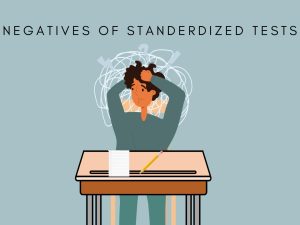Should parents allow their children to play football?
Numerous deaths and counts of life-altering brain trauma are hard to ignore
November 3, 2014
 Football is by far and away America’s favorite sport. It’s also arguably the most dangerous sport one can play. Over the past few years, it’s become increasingly apparent that playing football from a young age through adulthood has long term effects on both the body and brain that cannot be ignored, regardless of how hard the NFL tries to denounce them. Numerous deaths and counts of life-altering brain trauma have now raised the question: Should parents allow their children to play football?
Football is by far and away America’s favorite sport. It’s also arguably the most dangerous sport one can play. Over the past few years, it’s become increasingly apparent that playing football from a young age through adulthood has long term effects on both the body and brain that cannot be ignored, regardless of how hard the NFL tries to denounce them. Numerous deaths and counts of life-altering brain trauma have now raised the question: Should parents allow their children to play football?
The NFL is one of the most lucrative organizations in the world. That, coupled with the rabid fandom of millions of Americans, has allowed it to survive numerous studies that suggest playing football is incredibly detrimental to long term health and mental stability by simply burying the evidence in denouncement and the promise of more games for us to enjoy.
Most turn a blind eye. We dehumanize the modern-day gladiators we watch on Sundays, Mondays, and Thursdays. They are little more than entertainment to America, but it’s becoming increasingly difficult to ignore what their sport is doing to them. Players, both current and, even more so, past, are beginning to understand what football is doing to them, and it’s too much for many of their bodies and minds to bear, the most prominent example being former linebacker, Junior Seau, who committed suicide by shooting himself in the heart in the hopes that researchers would examine his brain and see what football did to him.
Thirty-four deceased NFL players, including Seau, were tested by the Boston University School of Medicine, and thirty three of them showed clear signs of Chronic Traumatic Encephalopathy, a condition caused by repeated concussions, something nearly everyone in football has experienced. It’s not in the higher levels of football that we really need to worry about, though; it’s pee-wee football. Parents should not let their children play football as children, as their brains are still developing.
Dr. Ann McKee, chief neuropathologist at Boston University, testified in 2009 in front of a House judiciary committee on the brain injuries caused by football. She said that, “because a young athlete’s brain is still developing, the effects of a concussion, or even many smaller hits over a season, can be far more detrimental, compared to the head injury in an older player.”
Football can permanently harm the brains of all those who partake in it, and youth players are at risk more than anyone else. A study by Virginia Tech showed that children playing in youth leagues hit at impacts that would be considered dangerously high for college players. Parents should no longer be able to feign ignorance towards the dangers of football; they need to step up and say that they will not allow their students to play a sport that can severely damage their children.
Maybe football needs a warning label on it similar to those found on tobacco products. Every time a parent signs their child up to play football, they should be forced to directly address the issues by signing a waiver that says something along the lines of “You’re aware that football can severely stunt the growth and development of your child’s brain, right? Are you really sure you want your child to partake in such an activity?”
The danger of football is less so the individual concussions and injuries, and more so a cumulative effect (read: Repetitive Head Injury Syndrome.) Repeated hits on every down of play cause player’s brains to bounce around, hitting their skulls. This causes micro-concussions that can build up over time to cause catastrophic amounts of damage to the brain. A child who grows up playing football is at risk for serious health issues down the line, and the only way we can truly prevent those is forbid them from participating in the sport to begin with.








